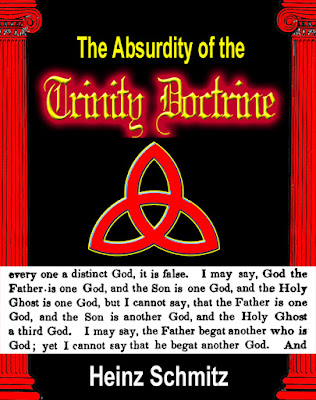The English Revised Version 1881 has "but of the Son he saith, Thy throne, O God, is for ever and ever; And the sceptre of uprightness is the sceptre of thy kingdom."
An American Translation by Smith & Goodspeed has "But of the Son he says, "God is your throne forever and ever! And a righteous scepter is the scepter of his kingdom!" (See also The Eonian Life Bible New Testament)
Hebrews 1:8, 9 is a quotation taken from Psalm 45:6, 7. When this entire Psalm is considered, it is evident that the king mentioned in verse 1 who has God's blessing is a different one than God himself who does the anointing, as shown in verse seven. However, it is mentioned in this same verse that God has anointed this one with the oil of exultation more than his partners. If the Son is the one addressed here as God, then who are the partners that "God, _your_ God," anointed his King-son to excel in his gladness? At Hebrews 1:9, when many translations read "God, your God, anointed you," clearly the one addressed in verse eight is not God, but the one who worships God and the one who is anointed by him.
Also the context shows that the contrast between Hebrews verses 7 and 8 is not to _essential being_ but to _function_. This fact is brought out in that Christ, and not the angels, was bestowed divine kingship, as stated in verses 8 and 9. Thus James Moffatt's translation reads at Hebrews 1:8, 9: "God is thy throne for ever and ever, and thy royal sceptre is the sceptre of equity; thou hast loved justice and hated lawlessness, therefore God, thy God, has consecrated thee with the oil of rejoicing beyond thy comrades."
Commenting on Hebrews 1:8, 9, B. F. Westcott wrote in his work "The Epistle to the Hebrews," London, 1892, pp. 25, 26:
"ho thronos sou ho theos...dia touto...ho theos, ho theos sou...It is not necessary to discuss here in detail the construction of the original words of the Psalm. The LXX admits of two renderings: ho theos can be taken as a vocative in both cases (_Thy throne, O God,... therefore, O God, Thy God..._) or it can be taken as the subject (or the predicate) in the first case (_God is Thy throne,_ or _Thy throne is God..._), or in apposition to ho theos sou in the second case (_Therefore God, even Thy God..._). The only important variation noted in the other Greek versions is that of Aquila, who gave the vocative thee in the first clause (Hieron. _Ep._ lxv. _ad Princ._ 13) and, as it appears, also in the second (Field, _Hexapla_ ad loc._). It is scarcely possible that 'elohim in the original can be addressed to the king. The presumption therefore is against the belief that ho theos is a vocative in the LXX. Thus on the whole it seems best to adopt in the first clause the rendering: _God is Thy throne_ (or, _Thy throne is God_), that is, 'Thy kingdom is founded upon God, the immovable Rock'; and to take ho theos as in apposition in the second clause.
"The phrase 'God is Thy throne' is not indeed found elsewhere, but it is in no way more strange than Psalm lxxi. 3 _[Lord] be Thou to me a rock of habitation...Thou art my rock and my fortress._ Is xxvi. 4 (R.V.) _In the LORD JEHOVAH is an everlasting rock._ Ps xc. 1 _Lord, Thou hast been our dwelling-place._ Ps xci. 1 _He that dwelleth in the secret place of the Most High..._ v. 2 _I will say of the Lord, He is my refuge and my fortress,_ v. 9; Deut. xxxiii. 27 _The eternal God is thy dwelling-place._ Comp. Is. xxii. 23.
"For the general thought compare Zech. xii. 8. This interpretation is required if we adopt the reading autou for sou.
"It is commonly supposed that the force of the quotation lies in the divine title (ho theos) which, as it is held, is applied to the Son. It seems however from the whole form of the argument to lie rather in the description which is given of the Son's office and endowment. The angels are subject to constant change, He has a dominion for ever and ever; they work through material powers, He--the Incarnate Son--fulfils a moral sovereignty and is crown with unique joy. Nor could the reader forget the later teaching of the Psalm on the Royal Bride and the Royal Race. In whatever way then ho theos be taken, the quotation establishes the conclusion which the writer wishes to draw as to the essential difference of the Son and the angels. Indeed it might appear to many that the direct application of the divine Name [actually divine title] to the Son would obscure the thought."




No comments:
Post a Comment